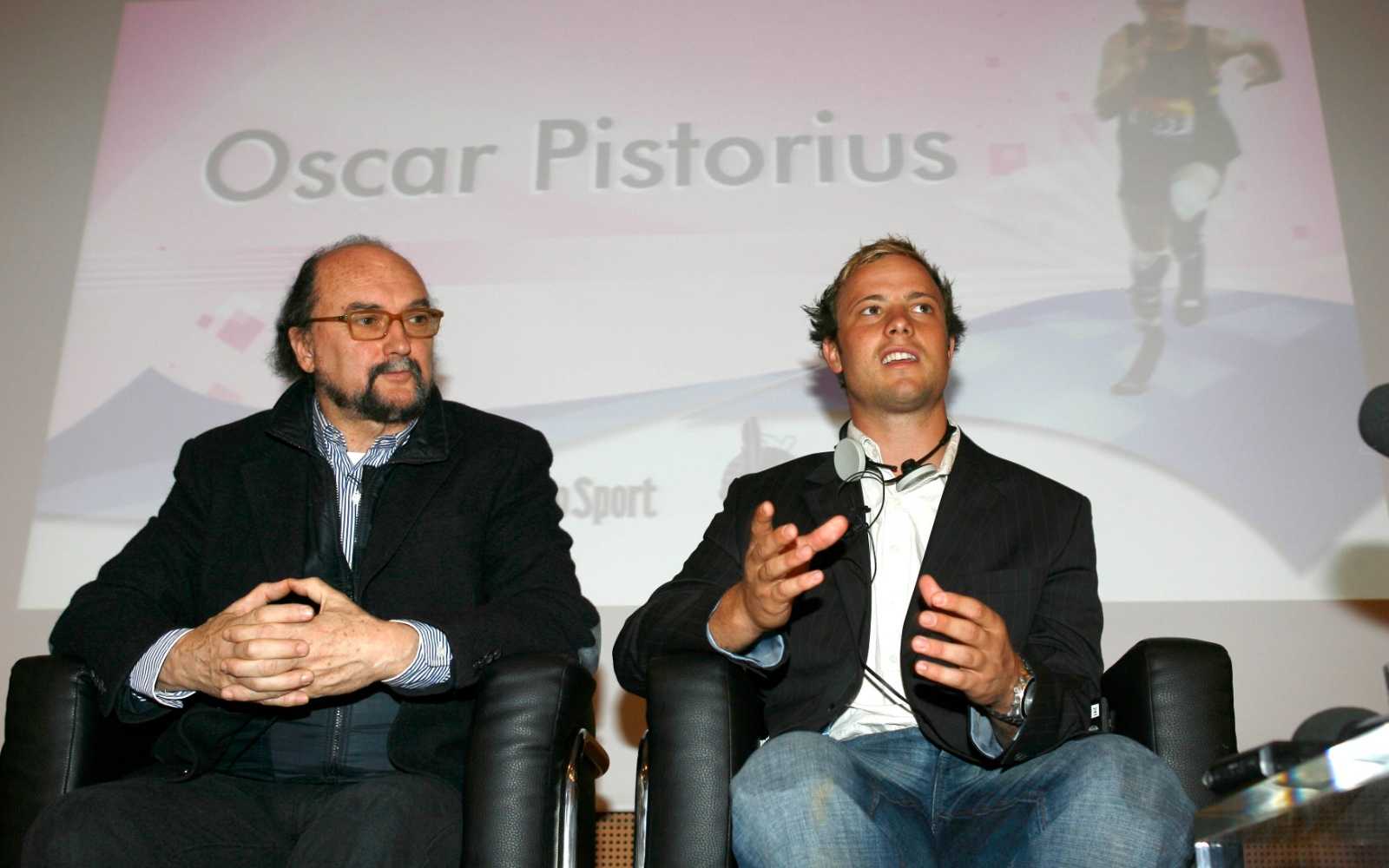I personally met Oscar Pistorius in 2007. I had seen him for the first time a few months earlier in a CNN report and his story had impressed me.
So I spoke about it to Candido Cannavò, a former director of La Gazzetta dello Sport who still had an important role within the newspaper, and he immediately fell in love with the challenge that the young South African, with two stumps and prostheses in titanium, was throwing to be able to compete on the athletic tracks with the so-called able-bodied.
THE FLAG
Thus Pistorius’ dream became, for La Gazzetta dello Sport, the flag of a crusade for a more inclusive sport, as it is now called, for Paralympic athletes or those with disabilities.
THE BOOK
The idea to write a book with him was born and they entrusted me with this task.
I went to Rome to the Golden Gala on July 13th where the European debut for the young athlete was scheduled and in a competition for able-bodied people. I spoke to him and he really liked the idea of the book and so we immediately started working on the project.
I followed him to some races in Germany, then around Italy where he had been invited for public meetings and conferences, which were always packed with people. He was incredibly successful. One evening we went with Ottavio Missoni and Candido Cannavò for dinner at Boeucc and it was a blast.
THE LEGAL CAUSE
When the IAAF, now World Athletics, decided that Pistorius could not compete with able-bodied athletes because his prostheses offered him a clear advantage, I called Bruno Gattai, a former skier, former commentator and well-known lawyer, to study a possible appeal against this decision.
Gattai found him suitable colleagues and so the CAS, Sports Court of Lausanne, overturned the IAAF’s decision at the beginning of 2008. Unfortunately, Oscar was unable to obtain the minimum mark for participation in the Olympic Games, because he had had little time to train.
THE TRIP TO PRETORIA
Before the CAS decision I flew to Pretoria, to his house, to learn about the environment in which he had grown up. Oscar immediately revealed himself to be an intelligent and sensitive young man.
He also knows how to write well and with irony. His company was a pleasure. I was just scared in the car, because he was driving with his knees on the steering wheel, his hands were busy on the phone. He said he didn’t have time for calls before and the car was perfect for long-distance conversations with his friends.
THE HOUSE
Only once did he show me the gun, which he said was necessary for defence in that difficult and violent country.
He also took me to visit the house he was building, the one where the crime took place. It was similar to a fort, high walls around and inside a complex of villas isolated from the rest with a fence controlled by security guards. For this reason, from the beginning I did not believe in the excuse of the thief who had broken into the house, who had forced him to shoot.
Only he can say what went on in his head that night. The horror of the death of his young girlfriend remains, massacred by shots on the night of the day dedicated to love. How was it possible that that young man, who I had found so human and sensitive, suddenly became a ruthless killer?
THE HYPOTHESES
There are those who maintain that that night he was drunk and under the destructive effect of some stimulant. Others claim that for some time the pressure he was subjected to had led him to overreact.
In the last two years he had lived on a stage, which was not his usual one and the discomfort had manifested itself on some occasions. Even on the track he was no longer the same, in fact after being defeated in the 200 meters of the London 2012 Paralympics, he accused the winner, the Brazilian Oliveira, of having used irregular prostheses, longer than normal.
This reaction was not like him. The jet-set life that had been imposed on him had led him to cut ties with friends from the past and this had made him fragile and therefore also violent, unfortunately.
THE FUTURE
I remember when he told me about his trip to Mozambique with a camper, on which he had loaded dozens of prostheses, which he then donated to many men, women, children, amputees, victims of mines left by the war.
“Why do I do this? – He had explained to me – “Because do you know what it means for a human being to be forced to crawl in the dust? Here I want to give them back the dignity of getting up and facing life differently.”
Now Oscar will remain confined for 7 years in his uncle’s house, he will follow the procedures established for his recovery, but I hope that in this time he will find the desire to dedicate himself to others, the only way to become a man again.
Of course, I would like to talk to him, meet him again to understand, but now the law does not allow him to speak to the media and therefore the door is closed.
Credit: Gianni Merlo – AIPS President


